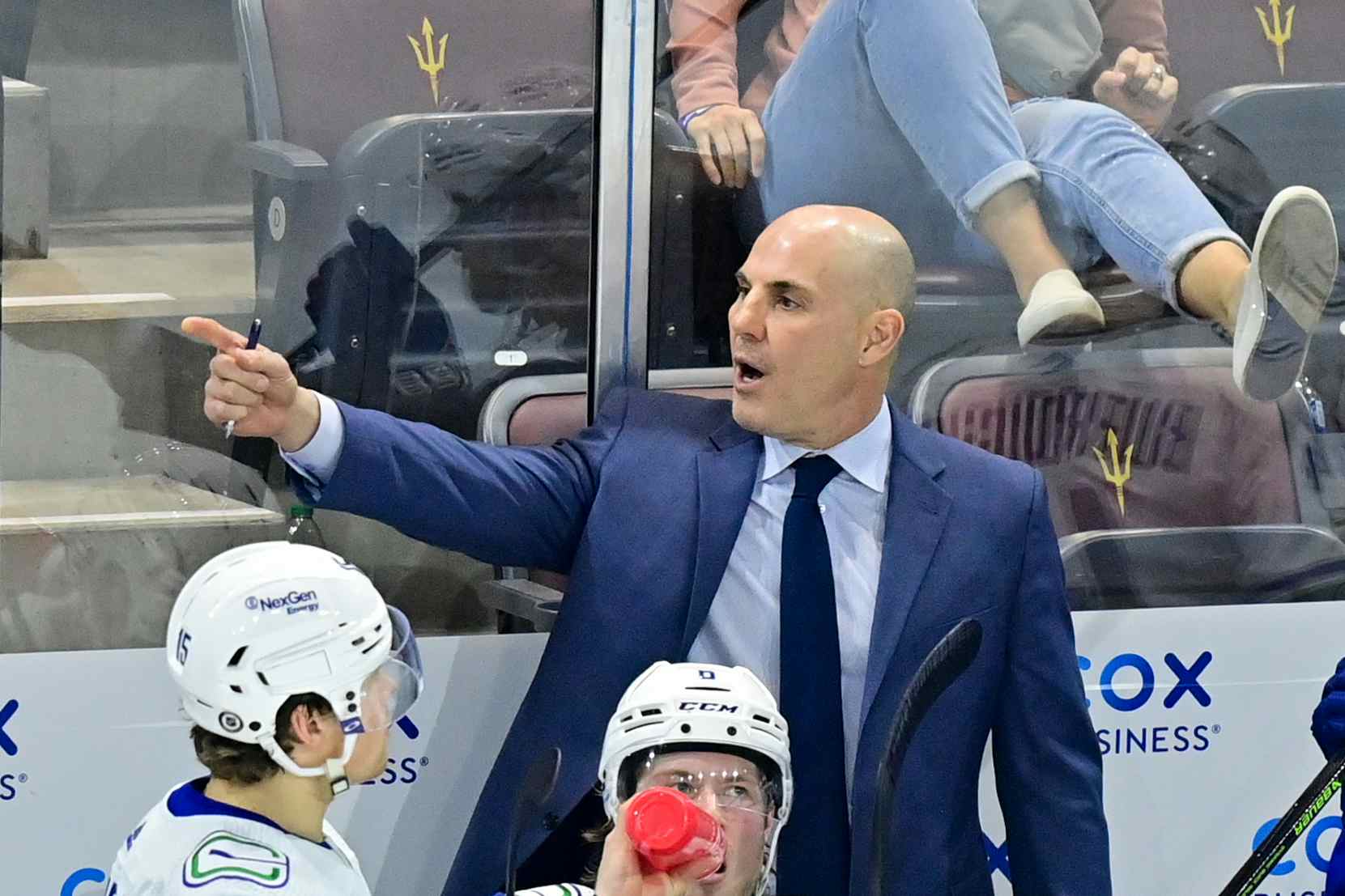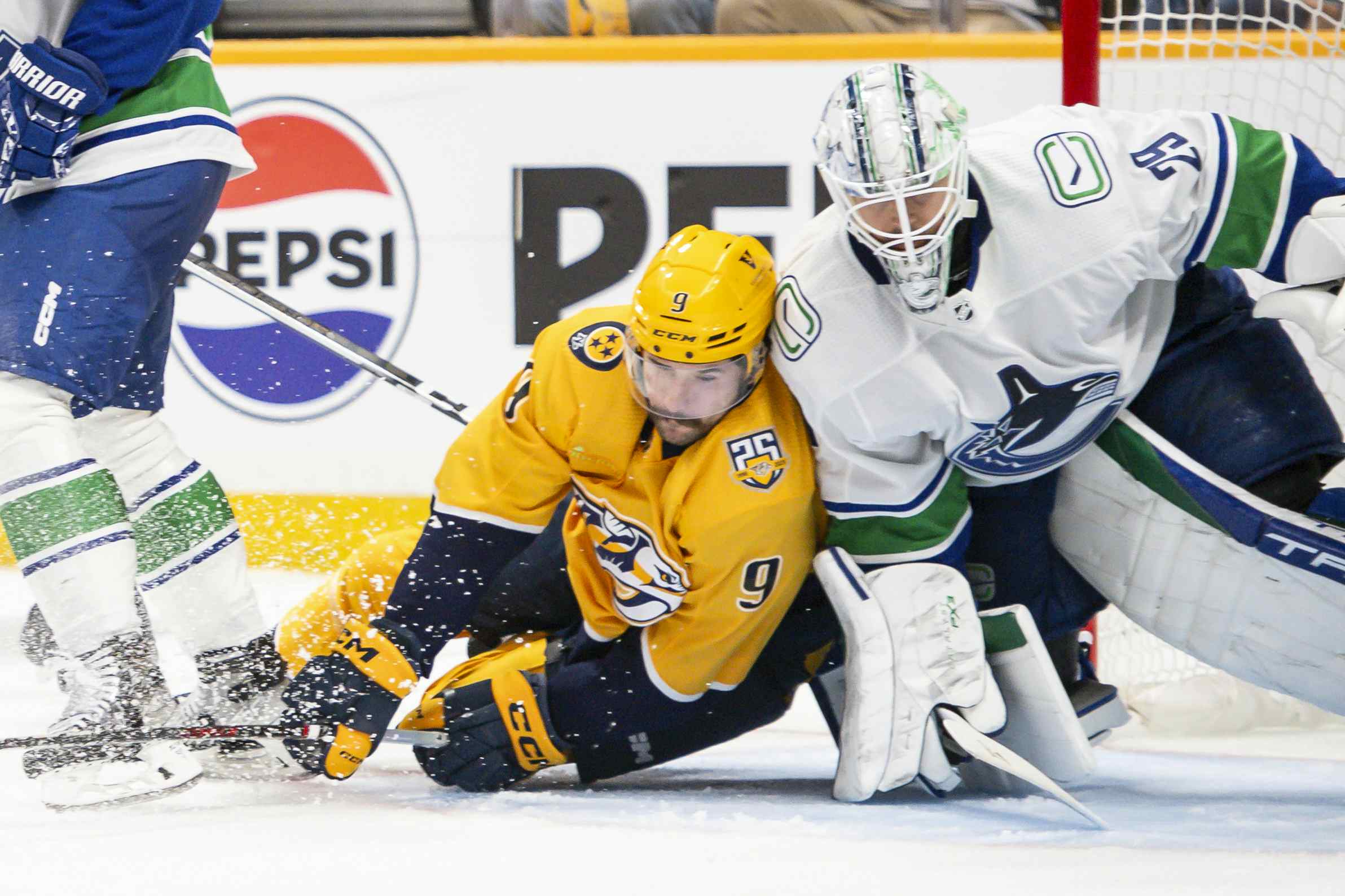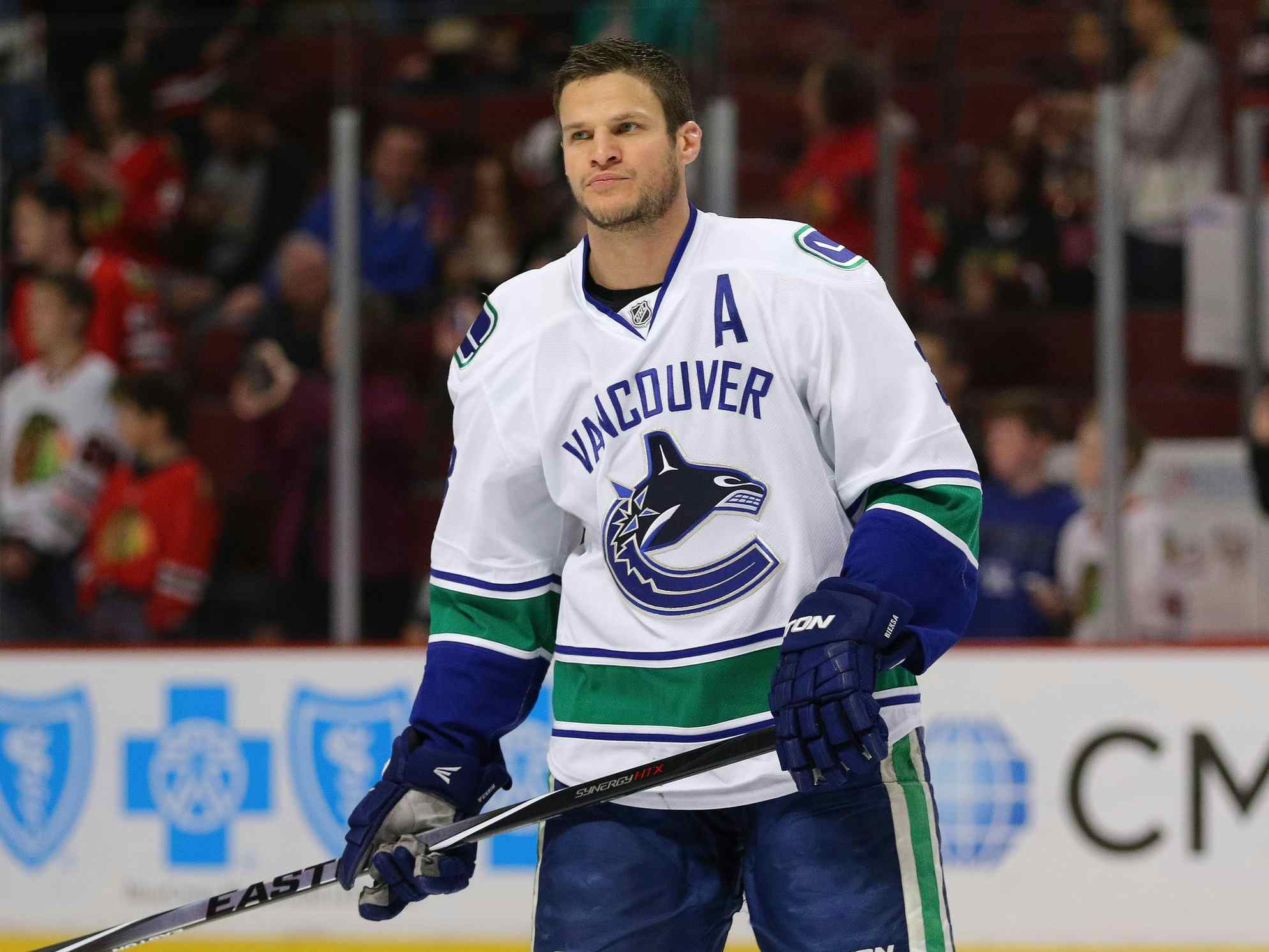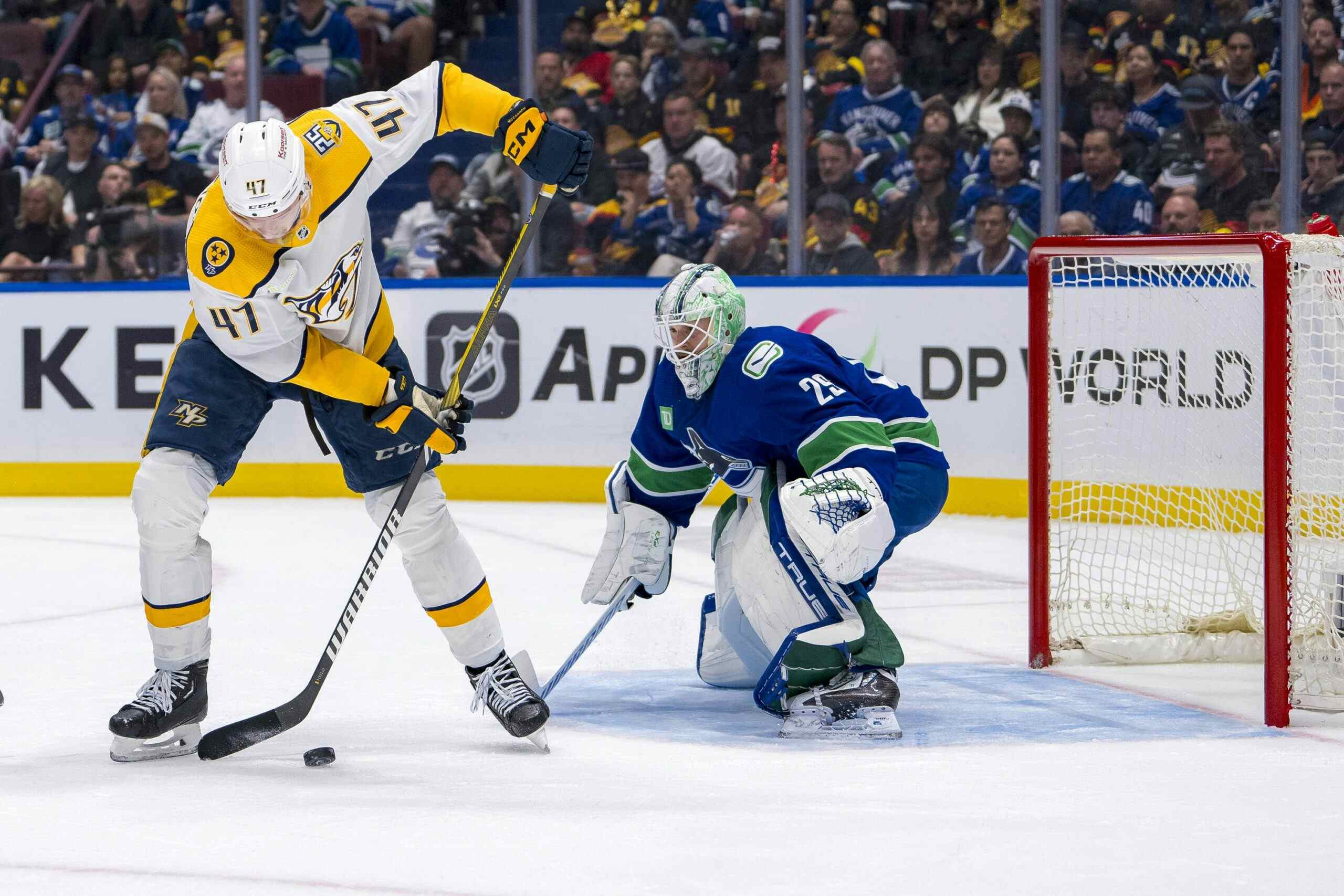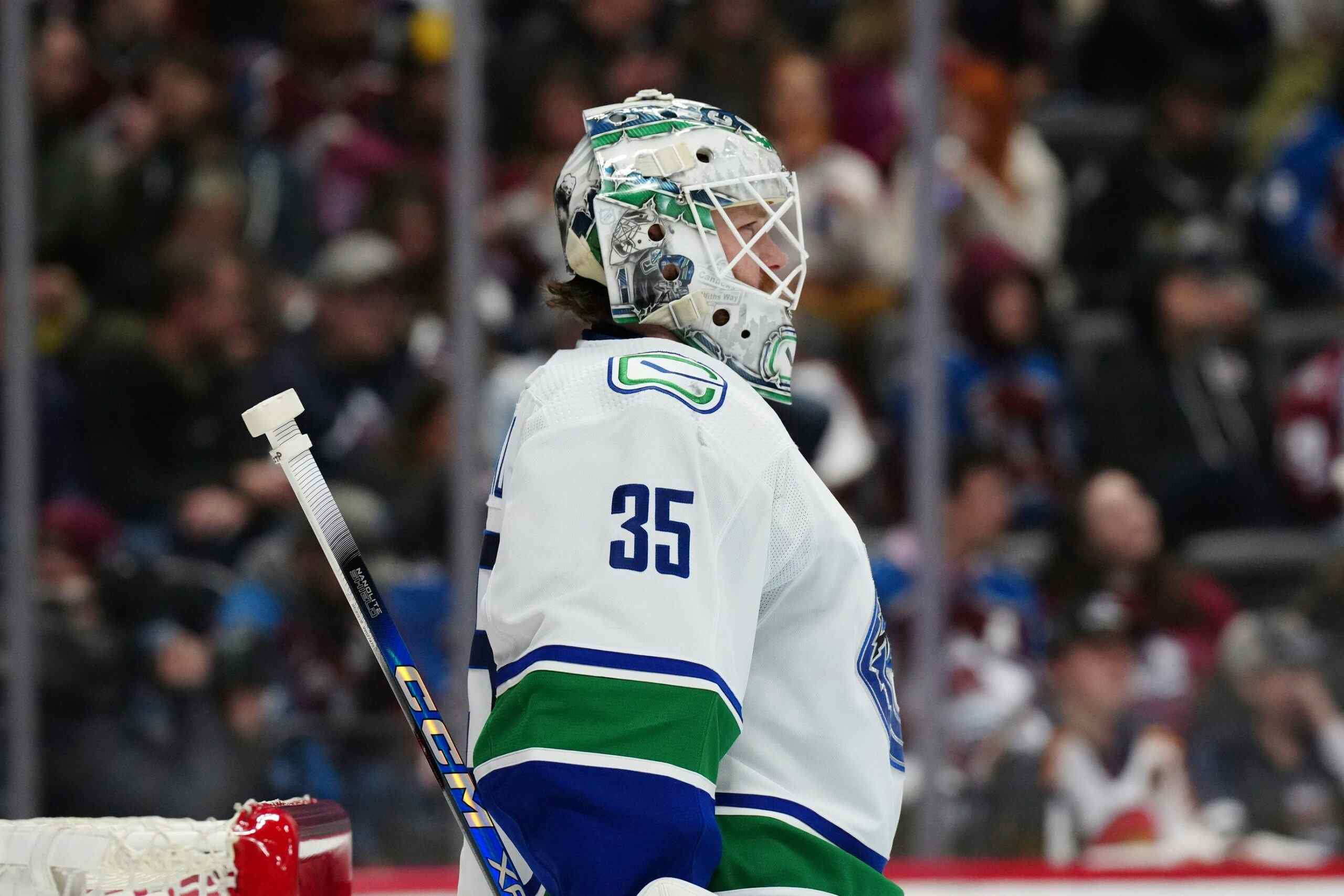Why Evan McEneny did not require waivers to be assigned to AHL

6 years ago
On Saturday afternoon, the Canucks further reduced their training camp roster by assigning ten players to the Utica Comets.
There weren’t any shocking surprises as all the players were likely to find their way to the Comets at some point. One player who did immediately jump out at me, though, was Evan McEneny. It wasn’t so much that the Canucks assigned him to the Comets, it was because he didn’t show up on most waiver wire updates.
CapFriendly is a fantastic resource that provides a wealth of information at a quick glance, that includes waiver exemptions. On the Canuck’s cap sheet, they have McEneny listed as no longer being waiver exempt:

The green arrow beside Stewart shows what it looks like when a player is waiver exempt.
Given this, I operated under the assumption McEneny required waivers for the upcoming season. I even tweeted out as much, as I hadn’t looked further into it… until he wasn’t on waivers on Saturday. So I decided to dig.
First, outlining the waiver exemption rules, which are located in Article 13.4 of the NHL/NHLPA CBA
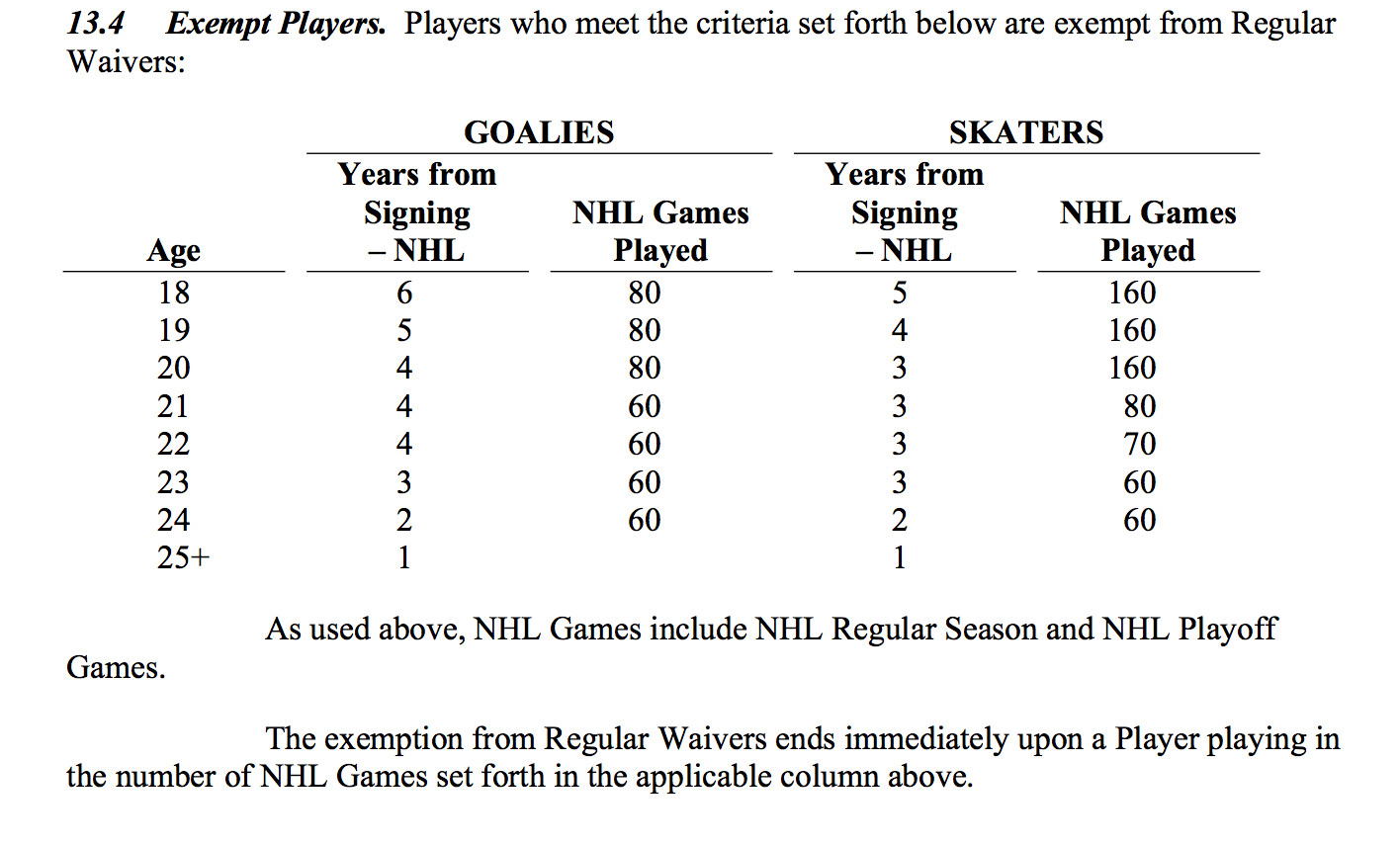
To add on top of that, you also have to determine the ‘age of the player’ based on the CBA, and that is outlined in Article 9.2

McEneny was born on May 22nd, 1994 and signed his ELC with the Vancouver Canucks on September 14th, 2012. According to the CBA, he was 18-years-old. It’s obvious in this case but can get complicated with other players and their date of births, so it’s always important to double check.
Given that McEneny was eligible for five years or 160 NHL Games played of waiver exemption. With the 2017-18 season about to commence, it was fair to assume that his waiver exemption had expired as he had signed his ELC 5 years ago. But McEneny followed a different career path than “normal” and had returned to the OHL for an overage year in 2014-15 despite playing one game for the Utica Comets to close out the 2013-14 season.
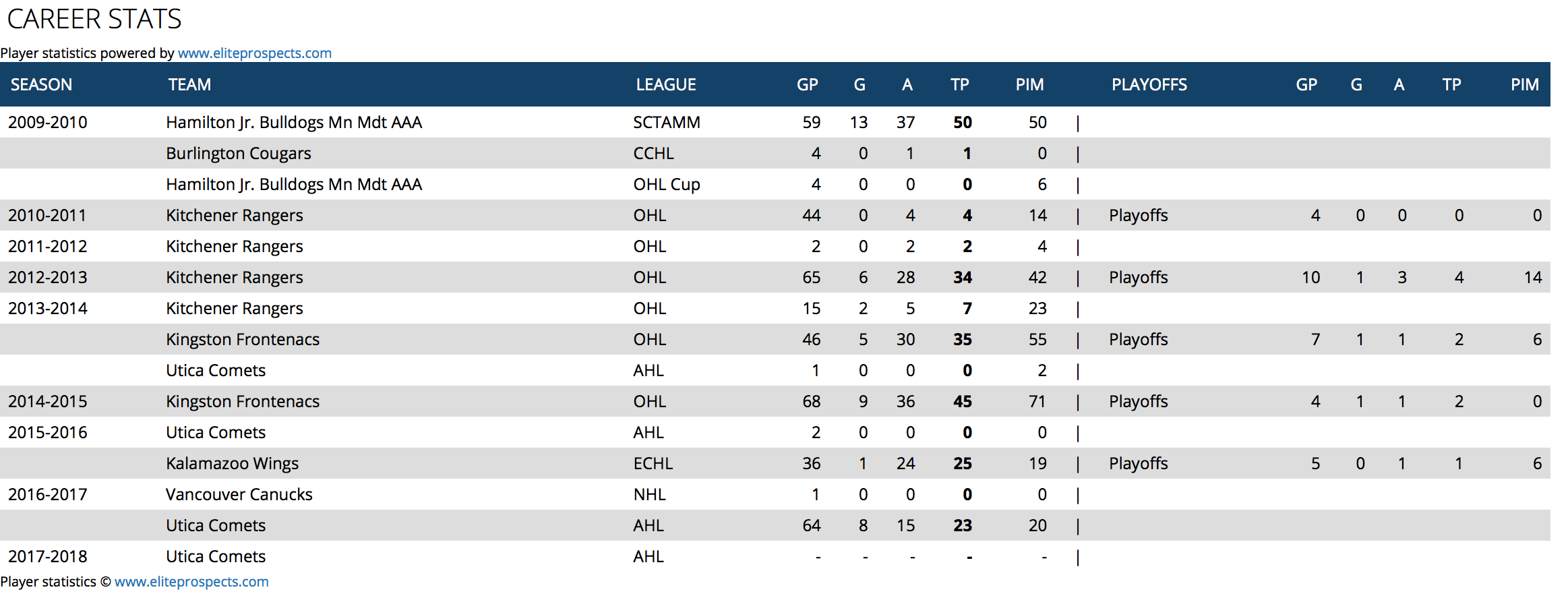
Here’s where it gets complicated. Further down in Article 13.4, there are some outlines of what constitutes a year and how it is calculated.
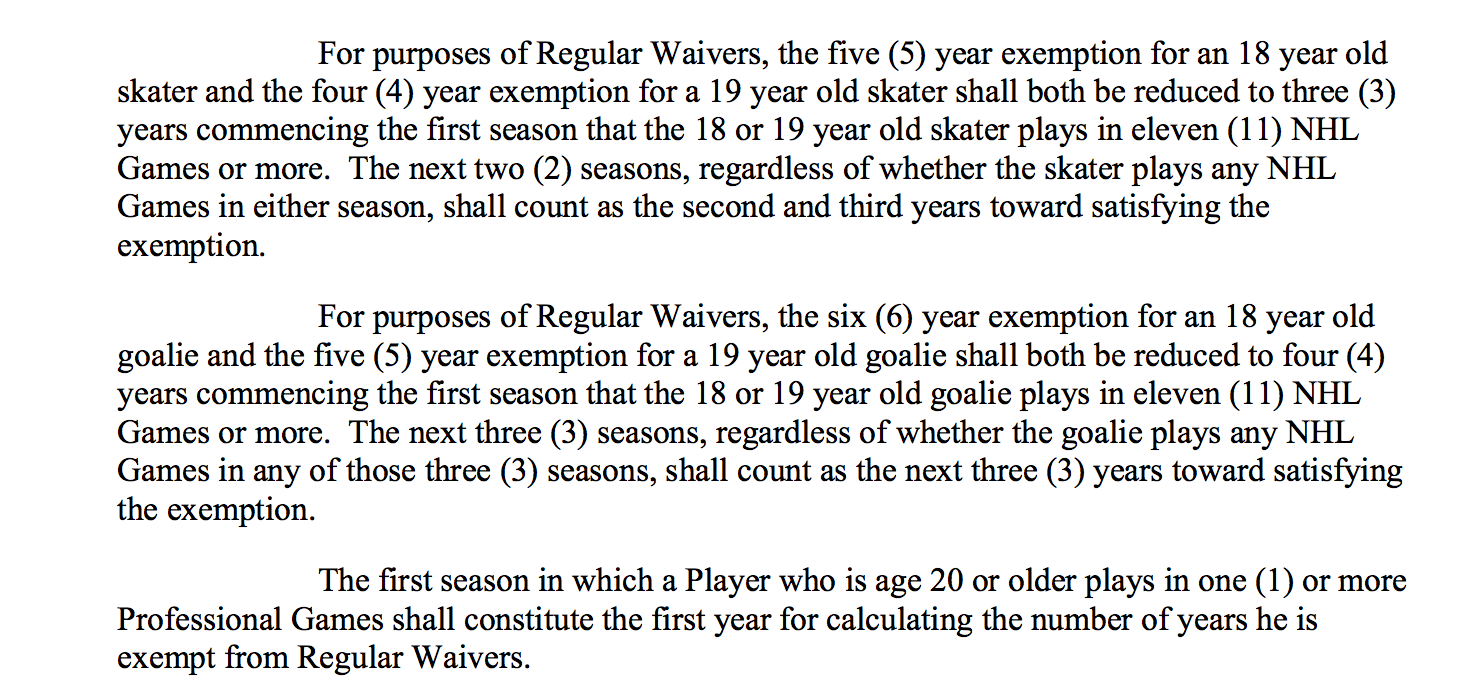
For McEneny, because he did not appear in any NHL games during the 2012-13 or 2013-14 seasons, the 11 game requirement did not force the exemption to be shortened to three years. McEneny appeared in one AHL game during the 2013-14 season, but that was deemed as his ’19-year-old’ year. That is an important distinction. McEneny then went back to the OHL for the duration of his 20-year-old season in the 2014-15 season and did not appear in any professional games this season.
The third paragraph in the image applies and is outlined as:
The first season in which a Player who is age 20 or older plays in one (1) or more Professional Games shall constitute the first year for calculating the number of years he is exempt from Regular Waivers.
Since McEneny did not appear in any professional games during the 2014-15 season, his exemption clock did not take effect until the 2015-16 season when he played for the Kalamazoo Wings and Utica Comets. This deemed him as being 21-years-old and being bound by the exemption rules outlined above which means he is exempt for three years or 80 NHL games. That first year of exemption was 2015-16, where he mostly played for the Wings, the second year being the 2016-17 season, where he spent the majority of the year in the AHL and appeared in one game for the Canucks during the mumps outbreak. Thus this year, 2017-18, is the final year of waiver exemption for McEneny despite originally losing that exemption before this season.
If McEneny had appeared in one game for the Comets to close out the 2015-16, that would’ve activated the first year of waiver exemption and would’ve resulted in the young defenceman requiring waivers for this season. Since he appeared in that AHL game as a 19-year-old, it didn’t activate the clock. This waiver exemptions did not apply to the contract slide, as McEneny did use his first year of his ELC during that overage season in the OHL.
McEneny’s is a highly rare case, as he was assigned back to the OHL as an overage player and did not appear in any single game at the professional level. As outlined above, one contest with the Comets would’ve had a ripple effect that would’ve changed things now.
It is interesting that despite being outlined with exact ages, years and games played that one additional line in the text can adjust how the rules are enforced. McEneny’s ascension as a legitimate prospect created a spotlight on him that had people worried that they may lose him on waivers this season. But the slightly different development path, that one line within the CBA, and the fact that McEneny played that one game as a 19-year-old and not a 20-year-old gives the Canucks one more year or 79 NHL games before McEneny does require waivers.

